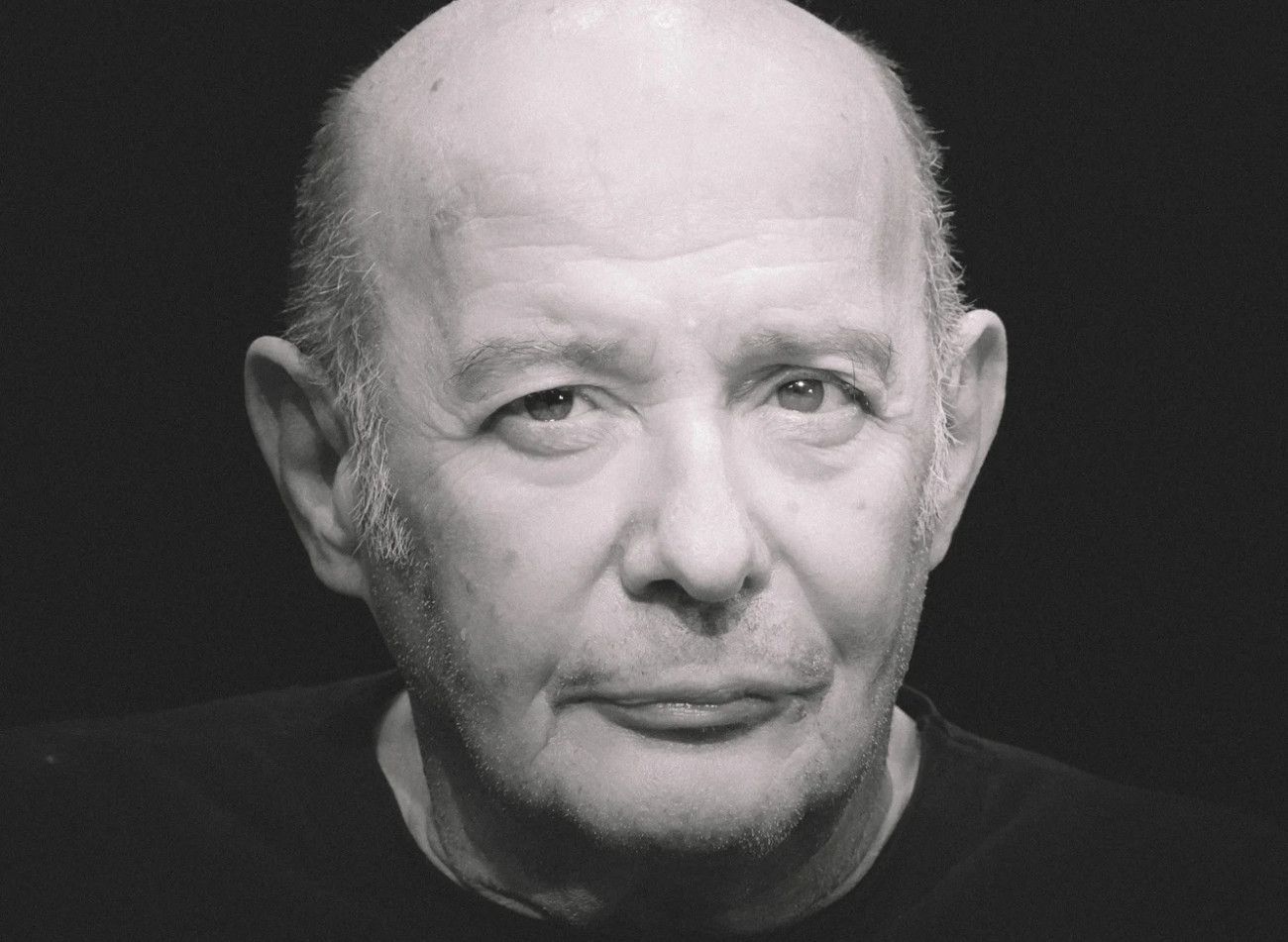From the diagnosis to treatment: How to get to a psychiatric hospital and what follows

|
Valentina Hristakeva graduated from Social Activities at Burgas Free University. Her professional career began in 1999 at the International Organization of the Association of Reformers in Psychiatry. In 2007, Hristakeva became the director of the Global Initiative in Psychiatry-Sofia (GP-Sofia) Foundation. In recent years, he has been involved in a number of projects aimed at reforming mental health systems in the Southeast Europe region.
Kalina Ivanova graduated from Psychology and Clinical Social Work. He has worked for 17 years for GIP-Sofia as a social services coordinator. During this time, it has accumulated considerable experience in both the direct support of people with mental disorders and the management and provision of social services aimed at recovering.
GIP-Sofia is a non-governmental organization established in December 2004. Its main activity is related to guaranteeing the rights of people with mental health difficulties, their families and loved ones. She is a social services provider for the cities of Sofia and Lovech.
Dnevnik talks with Valentina Hristakeva and Kalina Ivanova about the process of admission and discharge of patients in psychiatric hospitals in Bulgaria, as well as for the gaps in the system, which lead to fatal consequences for both people with diseases and those around them. The occasion for the conversation is a series of cases of aggression manifested by people with mental health problems in public.
Your foundation helps people with mental illness. Could you describe what time a person goes from the first symptoms that something was wrong, to a psychiatric hospital?
Valentina Hristakieva (V.H.): – The moment when it is most appropriate for a person to be treated is when he sought help himself. Admission can be done in several ways, and the most effective is to seek help yourself. This is best to be encouraged and helpful from a relative. Often, because of the stigma, relatives cannot talk to their very close friends, colleagues and professionals, and a doctor's visit is validating this fear.
Neither money nor support: where does psychiatric assistance fail in Bulgaria
The woman who stabbed three men in Sofia was in psychiatry and stopped drinking medicines
There was very likely to have some process in which her relatives were looking for help, and the girl took some medicines. Often, a person (with a mental illness) does not want to drink them, and loved ones try to grind them in his food. The point is that people themselves feel this because there is a change in their mental state, and this greatly affects the processes of trust between them and their loved ones.
As they say – there is domestic violence but no abuser – the abuser is inside you
Valentina Hristakevadirector of the GIP-Sofia Foundation
In our practice, we investigate whether there is any way to go to a doctor voluntarily and accept that there is a disease. And it's a matter of trust – if we find someone with whom he has such a relationship, we will get more. It will not work out if he has been ill for a very long time without being treated and has no trusting relationships around him, as is the case with many homeless people.
Are there any problems with voluntary treatment?
VH: – There are major problems that accompany this process. One of them is the time that the psychiatrist will separate to man and his relatives at their first meeting. The more time he spends the attendant with his patient, the better the relationship is created and the patient is more inclined not to interrupt medication. The system problem we see is that the National Health Fund allocates very little money to examine with a psychiatrist. I think it covers only one primary and one secondary examination.
The bad thing is that very often even our patients say that they go to voluntary treatment alone, but doctors do not believe that they have a mental disorder. In some cases, they are refused hospital. It may be that the hospital really does not have the opportunity to admit or give it a planned, for example after 10-14 days. However, after this period, he may have a completely different judgment about his own illness.
As with any chronic illness, you know when you get worse. In this case, some symptoms begin to appear: not to sleep, to sleep too much. You start to hear some things and notice how others look at you. The people we work with are well trained to recognize these symptoms. I have a patient who realizes herself that she has to go to a psychiatrist by something small, for example, she begins to put on her lipstick too often.
Do you think that the lack of knowledge of the symptoms is one of the problems for people suffering from mental illness?
VH: – Sometimes it is very difficult, especially if you have some positive symptoms. Voices and obsessive delusions become part of your reality. In most cases, you have no idea that this is a symptom. We are trying to maintain constant contact with such people. They often boast themselves if they feel good. However, if they disappear for a while and do not call, we proactively go to the place to find out what is happening.

There was a case where a person who visited us every day suddenly disappeared. We found it locked in our house for a very long time. We have tried to persuade him to go out for weeks for weeks. It turned out that some dogs had attacked him and was in a very poor health. Somehow we were able to convince him to go into voluntary treatment. If we had missed that moment, he would have gone to his house and find out about the news.
And what are the other paths for admission to a psychiatric hospital?
VH: – Another option is compulsory treatment when a person has a risky behavior towards himself or to others. In this case, he has no awareness of his condition, and voluntary treatment is an impossible option. Then we can report it to enter into a mandatory order under the Health Act. When a person is raging, screaming and behaving aggressively, we know there is suffering. We can do two things – call the ambulance and try to hospitalize it in order of coercion or signal to the prosecutor's office.
If they find that this person is dangerous, he can be sent to compulsory treatment. However, it must be ensured that the report was not used for abuse because there were such cases. For example, a man releases a letter to the prosecutor's office that his wife rages and they send her to compulsory treatment, but she has no indications of mental illness. Another problem is that when there is coercion, a person is much more difficult to adhere to treatment afterwards.
What is most common in hospitals in the country? More prevailing voluntary or forced accommodation?
VH: – I am not safe for these statistics. I think most people are certainly voluntarily. The bad thing is that most of them are permanently hospitalized because they have nowhere to live, and there is no one to support them in their daily lives. Often this happens because of the long time during which patients stop making decisions about their lives.
In hospitals, they have no personal belongings, no personal space, and the staff controls absolutely everything. The elections in the lives of these people are reduced to absolute zero. And so they spend, for example, 10 years, after which they are more likely to need even more time to get used to the external environment from which they were torn off.
What happens to people who are not left for? This is exactly what the 22-year-old young woman was claimed.
VH: – I will not agree that there are no places in hospitals. Psychiatrics report to the Ministry of Health every day for their capacity. However, there is no electronic system to check where the vacancies are currently. And hospitals can hardly accept highly deteriorated people because they are underfunded. Their staff is not enough and this is a serious challenge for them. That is, the whole team of one ward will have to engage with a single person, and they have many other patients.
A total of over BGN 30 million is required for psychiatrists
Usually, patients who have been sent to compulsory treatment are left in psychiatric hospitals for a certain period. These can be three months in which the symptoms are controlled and then the patient is discharged. This is also a problem because the release of a person who has been a compulsory treatment is obviously risks to his or her own illness. I'm not even talking about risks to others, rather risks to myself.
And why do you think that psychiatry is not engaged enough with this problem?
Kalina Ivanova (KI): – Their task is very specific – they are interested in the healing part. I think they have been used for a long time and continue to be used as a control mechanism. They are somehow put in a position to save the society from « dangerous crazy ». It seems as if initially these places are not charged with the idea of restoring a person so that he can work and continue his life.
It is not enough for one person to be treated with medicines alone. This process must continue in the community
Kalina Ivanova. Coordinator Social Services at GIP-Sofia
As long as it has this thinking, we will never have a reform in psychiatry. It is not enough for one person to be treated with medicines alone. This process must continue in the community. People get used to warm as someone feeds them and take care of them, and even the thought of going outside, getting on the tram and going to work, causes great stress.
Do you think that psychiatry should gradually prepare patients for returning to the usual lifestyle?
KI – The process is very difficult and painful. Another is the issue that those who are in psychiatry do not pay their stay. After his end, they can be moved to a resident service, but they have to give 50% of their income. The amount covers the costs of light, heat, staff, food. And although conditions are probably better in residences, many people choose to stay in a psychiatric hospital because they are used to it. However, this should be a medical establishment, not a place to live.
Does the state or organizations need to make additional efforts so that society is better informed of the symptoms of these diseases?
KI: – This is absolutely mandatory because there are always initial symptoms. There are programs in developed societies that first teach teachers to recognize some things and then the children. It is very important to have programs to reduce stigma and normalize suffering. Others not isolate this person, but take care of him.
In Bulgaria, there is no developed sustainable program in early interventions to address mental disorders. Most of them already have manifestations between the age of 14-17. It is very important that children from an early age be introduced into volunteer programs that allow them to have contact with people from different environments. This would help them more easily accept those with mental illness, as well as to limit their stigma in society.








